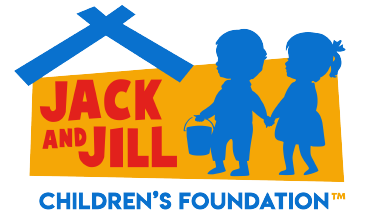Health Service Executive Entitlements
1. GP visit cards for children under 8
Children under the age of 8 are entitled to free visits to a participating GP.
In addition to free GP visits, the GP visit card for children under 8 covers specific assessments at age 2 and 5 and care for children with asthma.
All children under 8 who live or intend to live in Ireland for at least 1 year are eligible. Your child will be included in this scheme until the end of the month of your child’s 8th birthday.
You will be notified approximately 3 months before it is due to expire.
The card covers free GP visits, including home visits and out of hours, urgent GP care.
If your child already has a medical card, there is no need to register them for inclusion in this scheme while they continue to be eligible for a medical card. However, if your family circumstances change in the future and your family is no longer eligible for medical cards, you can then register your children for GP visit cards for children under 8.
The GP Visit Card does not cover medicines or hospital care. However, all inpatient hospital services are free for children under 16 in all public hospitals.
How to Apply
To register, you will need:
- Your Personal Public Service (PPS) Number
- The PPS Number of each child
- Your choice of participating GP
You are sent your child’s PPS Number after registering their birth. If you do not have a PPS Number for your child, contact Client Identity Services in the Department of Social Protection on Lo-call 1890 927 999, or email [email protected].
To request a replacement for a lost card, phone Lo-call 1890 252 919 or email [email protected], including the name, address and date of birth of the card holder.
2. Medical Cards
Medical cards are issued by the Health Service Executive (HSE) and allow the holder to receive certain health services free of charge. They allow people to access Family Doctor or GP services, community health services, dental services, prescription medicine costs, hospital care and a range of other benefits free of charge. Normally, your dependent spouse or partner and your children are also covered for the same range of health services.
All medical card holders pay €1.50 per prescription with a monthly ceiling of €15 per family. Information and forms are available on medicalcard.ie. The medical card is means tested. Cash income, savings, investments and property (except for your own home) are taken into account in the means test.
GP Visit Cards
If you do not qualify for a medical card on income grounds, you will automatically be assessed for a GP Visit Card. It is also means tested, however, the income limits are 50% higher than that of the medical card.
Domiciliary Care Allowance Medical Card
If you have a child for whom you are getting Domiciliary Care Allowance, the child is eligible for a medical card, without a means test. Please complete the following application form to get the medical card online or download.
Emergency Medical Cards can be issued in exceptional circumstances contact your Specialist Children’s Liaison Nurse for more details.
How to Apply
The quickest way to apply for a medical card is online, on www.medicalcard.ie.
Application forms are also available from your Local Health Office and completed forms should be sent to:
Client Registration Unit,
P.O. Box 11745,
Dublin 11.
If you have any questions before you send your application, Lo-Call 1890 252 919
NOTE: Please note Medical Card Application will not be processed unless all relevant information is included.
3. Long Term Illness Scheme
People suffering from certain conditions (listed below), who are not already medical card holders, can get free drugs, medicines and medical and surgical appliances for the treatment of that condition. These are provided under the Long Term Illness Book. This scheme is administered by the Health Service Executive (HSE).
The Long Term Illness Scheme is not means tested.
You can hold a Long Term Illness Card and a Medical Card.
The medical conditions that qualify under the Long Term Illness Scheme are:
- Intellectual disability.
- Mental illness (for people under 16 only)
- Diabetes insipidus
- Diabetes mellitus
- Haemophilia
- Cerebral palsy
- Phenylketonuria
- Epilepsy
- Cystic fibrosis
- Multiple sclerosis
- Spina bifida
- Muscular dystrophies
- Hydrocephalus
- Parkinsonism
- Acute leukaemia
- Conditions arising from use of Thalidomide
- Receiving palliative Care Treatment
If you qualify, you will get a Long Term Illness Book. This book lists the drugs and medicines for the treatment of your condition, which will be provided to you free of charge through your pharmacist. Other drugs and medicines not related to the specified condition are not included in the Long Term Illness scheme and must be paid for in the normal way.
If you have neither a medical card, a GP visit card or a medical condition listed above, you can use the Drugs Payment Scheme to limit your expenses on prescription drugs.
How to Apply
A standard application form for the Long Term Illness Scheme is available online at
www.citizensinformation.ie.
You can also get an application form from your GP or the Local Health Office. When completed return to your Local Health Office.
4. Drugs Payment Scheme
Under the Drugs Payment Scheme, you pay a maximum of €80 in a calendar month for approved prescribed drugs, medicines and certain appliances for use by yourself and your family in that month.
In order to qualify for this scheme, you must be resident in Ireland for a minimum of 1 year or intend to live in Ireland for a minimum of 1 year.
The scheme covers the person who applied, his or her spouse/partner, and children aged under 18 or under 23 if in full-time education.
A family member who has a physical or intellectual disability or an illness and is unable to fully maintain himself/herself can be included in the family expenditure regardless of age. When you register for the scheme, each named person will have an individual Drug Payment Card. You should present this card whenever you are having prescriptions filled.
You do not have to register with a particular pharmacy for the scheme but for convenience it is advisable to use the same pharmacy in a particular month if you wish to avoid paying more than the maximum €80.
How to Apply
You can apply for the Drugs Payment Scheme online at www.mydps.ie.
You can get a paper application form from your Local Health Office. You can also download a copy of the Drug Payment Scheme application form.
5. Discretionary Hardship Scheme
The HSE has a national framework for the administration of Discretionary Hardship arrangements. The hardship scheme is designed to cover medical card holders for items such as medications, dressings and medical supplies, which are prescribed by a Consultant but not available through the medical card.
How to Apply
How you access this scheme varies depending on what part of the country you live
in.
- If you live in Dublin, Wicklow or Kildare you can apply via your Local Health Office.
- If you live elsewhere in the country, your first point of call will be your local pharmacy.
6. Free Nappies Scheme
As your child approaches three years and is not yet ready or unable to be toilet trained; you are entitled to apply for free nappies.
How to Apply
Contact your Public Health Nurse (PHN).
Department of Social Protection Entitlements & Support
1. Domiciliary Care Allowance (DCA)
Domiciliary Care Allowance (DCA) is a monthly payment for a child aged under 16 with a severe disability, who requires ongoing care and attention, substantially over and above the care and attention usually required by a child of the same age. It is not means tested.
From January 2025, the DCA is €360/month. You will receive your DCA payment on the third Tuesday of every month for the current month.
DCA medical card scheme
All children receiving DCA can get a medical card without a means test.
Rules
To qualify, the child must have a severe disability that is likely to last for at least 1 year and:
- Be aged under 16 (at 16, the child can apply for a Disability Allowance – see ‘How to apply’ below for more information)
- Live at home with the person claiming the allowance for 5 or more days a week. Exceptions can be made in some circumstances. For more information: https://www.citizensinformation.ie/en/social-welfare/disability-and-illness/domiciliary-care-allowance/
- Meet the medical criteria – see below
- Be ordinarily resident in the State
In addition, the person claiming the allowance for the child must:
- Provide for the care of the child
- Be habitually resident in the State.
Medical criteria
The legislation states that to qualify for Domiciliary Care Allowance a child must have “a severe disability requiring continual or continuous care and attention substantially in excess of the care and attention normally required by a child of the same age”.
This means that eligibility for DCA is not based on the type of impairment or disease, but on the resulting lack of function of body or mind which means the child needs extra care and attention. This care and attention must be required to allow the child to deal with the activities of daily living. The child must be likely to require this level of care and attention for at least 12 months.
The Department’s Medical Assessor looks at all the following before giving an opinion on whether your child meets the medical criteria:
- The history of the case.
- All medical reports received (your GP fills out a medical report and you should include reports from any relevant specialists).
- Your description of the care and attention required by your child. (The form allows you to state what extra care your child needs under a number of headings.)
Hospital Admissions
You can continue to receive the DCA for up to 26 weeks, in a period of 12 months, if your child is in hospital getting medical treatment (or other treatment) of a temporary nature.
If your baby stays in hospital for medical treatment immediately after their birth, you can get DCA for up to 18 months while they are in hospital.
If your child has been discharged home from hospital after birth and readmitted, the DCA will not be awarded until your child has been discharged home after this admission.
How to Apply
Complete a Domiciliary Care Allowance form.
If you can’t download the application form, you can:
- Have the form posted to you by the Department of Social Protection
- Collect a copy from your local Intreo Centre or Social Welfare Branch Office, or local Citizens Information Centre
You should complete Parts 1 to 5 of the form.
Your child’s GP or specialist should fill in parts 6 and 7 (the medical report) of the form.
Include any reports and other information about your child’s disability, and the impact it has on their care needs.
Pervasive Developmental Disorder (PDD) refers to a group of disorders characterised by delays in the development of socialisation and communication skills. Autism, Asperger’s Syndrome, Childhood Disintegrative Disorder and Rett’s Syndrome are generally referred to under this category.
Note: If your child has a Pervasive Developmental Disorder (PDD) you are advised to have the medical professional/specialist dealing with your child complete an additional medical form called DomCare3. (Please note that completion of this form is optional since medical professionals may have already provided a comprehensive report on your child’s medical condition and care needs. However, if you do not have a recent report from your child’s treating medical professional, the DomCare3 form can provide useful additional information).*
*DCA payment continues to be paid for three months following the death of the child being cared for.
2. Better Energy Warmer Home Scheme
The Better Energy Warmer Homes Scheme aims to improve the energy efficiency and warmth of homes owned by people on low incomes. It is operated by the Sustainable Energy Authority of Ireland (SEAI).
Rules
You must own your home and be living in it.
Your home must have been built and occupied before 2006.
You must be getting one of the following payments:
- Fuel Allowance as part of the National Fuel Scheme
- Working Family Payment
- Jobseeker’s Allowance for over 6 months and have a child aged under 7 years
- Disability Allowance for over 6 months and have a child under 7 years of age.
- Domiciliary Care Allowance
- One Parent Family Payment
- Carer’s Allowance and live with the person you care for
In addition, you only qualify for the Better Energy Warmer Homes Scheme once.
If you are in private rented accommodation and are at risk of energy poverty, your
landlord may be able to get a grant under the separate Better Energy Homes Scheme.
Read more about rights and obligations related to renting a home.
How to Apply
You must complete the application form (pdf). You can download it from seai.ie or contact SEAI to ask for it to be posted out.
Online applications are available at: https://www.seai.ie/ or email [email protected].
You can also call at 01 808 2005.
Better Energy Warmer Homes Scheme
Sustainable Energy Authority of Ireland
P.O. Box 119
Caherciveen
Kerry
Ireland
3. Carer's Benefit
This is a payment made to anyone in insurable employment who wish to take leave from the workforce for up to two years (104 weeks) to care for their sick child at home.
This payment is based on PRSI contributions. Please check with Revenue/Social Welfare.ie re your eligibility.
You can take part in employment, self-employment, training or education courses outside the home up to 18.5 hours per week. Please check Citizen’s Advice and Revenue for income threshold’s allowed. Carers Benefit is a taxable source of income.
When receiving carers benefit you cannot earn over €450 per week after tax. From July 2025, this will increase to €625.
Entitled to GP visit card when in receipt of Carers Benefit.
Both parents may be eligible to apply for Carers Benefit.
How to Apply
Carers Benefit form (CARB1) is available from your local Social Welfare Office or online at www.welfare.ie.
Locall: 1890 92 77 70
4. Carers Allowance
This is a means tested payment for carers who live and look after people who need full time care.
If you qualify for Carer’s Allowance you will also qualify for the Household Benefits Package (if you are living with the person you are caring for) and a Travel Pass.
There are 2 allowances in the Household Benefits Package:
Allowance 1
- The Electricity Allowance or
- Natural Gas Allowance or
- Cash Electricity Allowance or
- Cash Gas Allowance
Allowance 2
- Television Licence
Travel Pass:
Travel Pass is available on most Iarnród Éireann, Bus Éireann, Dublin Bus, DART and Luas Services and on certain private bus and ferry services. Consult with travel operators prior to traveling. Travel Pass can only be used when travelling with the person you are caring for.
Additional Information
You may be employed, self-employed, undertaking training or education courses outside the home for up to 18.5 hours per week and still be entitled to Carers Allowance provided you are within the means.
If you are looking after more than 1 child, you may be entitled to an additional 50% of the maximum rate of Carer’s Allowance each week.
You may be entitled to reduced creche fees for your children if you are in receipt of Carer’s Allowance. Please enquire with your local child care provider.
You can submit your application for Carer’s Allowance while awaiting approval of your Domiciliary Care Allowance application.
What is the means-test for Carer’s Allowance in 2025?
The main part of the assessment is the combined family salary. Couples with combined earnings of less than €900 per week and €450 for a single parent are exempted. However, starting in July 2025, this limit will increase to €1,250 per week for a couple and €625 for single parents.
For salary earning over these limits, a sliding scale of reduction applies, leading to a reduction in your payment until your application is refused.
For salary earning over these limits, a sliding scale of reduction applies, leading to a reduction in your payment until your application is refused.
Any savings, investments, shares, second property equity or other assets over €50,000 value will affect your application. For each thousand you are over, your weekly Allowance will be reduced by a set percentage.
How to Apply
The Carers Allowance form (CR1) is available from your local social welfare office or download here. You should apply for Carer’s Allowance as soon as possible. The form includes a medical report which must be signed by their doctor.
Note: If your child moves permanently into residential care the Carer’s Allowance continues to be paid for a period of 12 weeks.
Carer’s Allowance continues to be paid for 12 weeks following the death of the child being cared for.
5. Carers Support Grant
The Carers Support Grant is an extra payment for carers, aimed at enabling the carer and the person being cared for to take a break. You may use the grant in whatever way you wish.
This grant is paid in June each year and you automatically qualify for this payment if you qualify for DCA, Carers Allowance or Carers Benefit. A payment of €2,000 annually.
This payment is not means tested.
6. Carer's Leave
The Carer’s Leave Act 2001 allows employees to leave their employment temporarily to provide full-time care. You are entitled to take carer’s leave of at least 13 weeks up to a maximum of 104 weeks. If you ask to take less than 13 weeks’ carer’s leave, your employer may refuse your request.
Carer’s leave from employment is UNPAID but the Carer’s Leave Act ensures that people who want to take carer’s leave will have their jobs kept open for them. You may be eligible for Carer’s Benefit if you have enough PRSI contributions. If you do not qualify for Carer’s Benefit you may qualify for Carer’s Allowance which is a means-tested payment. You can take carer’s leave even if you do not qualify for these payments.
To apply for carer’s leave you must have worked for your employer for a continuous period of 12 months.
You can work for up to 18.5 hours a week in employment or self-employment while you are on carer’s leave, as long as you earn less than €450 a week. This is your take-home pay after deductions such as tax, PRSI and union dues.
How to Apply
Contact your employer to make relevant plans regarding application for carer’s leave.
7. Child Benefit
Child Benefit is a monthly payment to the parents or guardians of children under 16 years of age. It is paid for children under 18 years of age if they are in full-time education, full-time training or have a disability and cannot support themselves. Child Benefit is not paid for any child dependant aged 18 or older, even if they stay in education or training.
Non-EU/EEA citizens must be habitually resident in Ireland to quality for Child Benefit. If you are a non-EU/EEA citizen and legally working in this State, you may qualify for Child Benefit if your child is also resident here or in another EU state.
How to Apply
Complete a Child Benefit form available from your local Citizen Information Office/Post Office.
Post completed form to Department of Employment Affairs and Social Protection Social Welfare Services Office
St Oliver Plunkett Road
Letterkenny
Co. Donegal
F92 T449
Tel: (074) 916 4496
Locall: 1890 400 400
Homepage: http://www.welfare.ie
8. Vulnerable Customers Register Energy and Water
For energy customers you could be classified as a vulnerable customer if you meet the following criteria:
- If you are critically dependent on electrically powered equipment. This includes (but is not limited to) life protecting devices, assistive technologies to support independent living and medical equipment, or
- If you are particularly vulnerable to disconnection during winter months for reasons of advanced age or physical, sensory, intellectual or mental health.
For customers of Irish Water, you could be classified as a vulnerable customer if you meet the following criteria:
- If you are critically dependant on water for their medical needs, or
- If for reasons that may include advanced age or physical, sensory, intellectual or mental health reasons, you require additional support communicating with, or receiving services from, Irish Water.
Being on the register helps to safeguard those who are vulnerable.
How to Apply
If you are a member of your household is a vulnerable customer, it is important to let your energy supplier and/or Irish Water know.
Energy suppliers and Irish Water are required to provide customers with a free and easy way to register as a vulnerable customer. You should contact your supplier to discuss how you can register as a vulnerable customer.
The Revenue Commissioners Entitlements
1. Incapacitated Child Tax Credit
The Incapacitated Child Tax Credit can be claimed by a parent/guardian of a child who is permanently incapacitated, either physically or mentally and
- Became so before reaching 21 years of age or
- Becomes permanently incapacitated after reaching the age of 21, but while still in full-time education or while training for a trade or profession for a minimum of 2 years.
The credit can also be claimed in respect of:
- A stepchild
- An adopted child
- Any child of whom a person has custody, who is maintained at the person’s own expense and who is permanently incapacitated.
A credit may be claimed for each child where more than one child is permanently incapacitated. You may also claim tax relief in respect of medical expenses incurred by yourself or any other person.
Where the child is maintained by one parent only, that parent is entitled to claim the full amount of the tax credit. However, where the child is maintained by more than one person, the tax credit is divided between them in proportion to the amount paid by each towards the maintenance of the child.
The tax credit can be claimed by employees paying PAYE as well as by self-employed people.
A credit is not due where the child is fully maintained at public or charitable expense.
In 2018, the Incapacitated Child Tax Credit is €3,300.
How to Apply
You can claim the Incapacitated Child Tax Credit by completing Form ICC1. You will also need to get Form ICC2 certified by the child’s medical practitioner. Forms available at www.citizensinformation.ie.
If you are a PAYE taxpayer, you can claim the credit online through Revenue’s my Account service. If you are self-employed and pay tax under the self-assessment system, the credit is claimed by completing the ‘Incapacitated Child’ section on your annual tax return online at the Revenue Online Service (ROS).
If you claim using Revenue’s my Account service, you do not need to submit forms ICC1 and ICC2. However, Revenue may ask to see them if your claim is checked.
You must keep these forms for six years once you have made a claim.
The current Incapacitated Child Tax Credit is €3,800.
2. Primary Medical Certificate
The Primary Medical Certificate (PMC) is issued by the HSE for the purpose of accessing the Disabled Drivers and Disabled Passengers scheme. The scheme provides a range of tax reliefs linked to the purchase and use of specially constructed or adapted vehicles by drivers and passengers with a disability.
For further information:
How to Apply
To obtain an application form for the PMC, phone your local health office, complete same and return it to the local health office.
An appointment will be scheduled with the Area Medical Officer to assess eligibility.
For a guide to purchasing a vehicle please see ddai.ie
Note: It is advised not purchase a vehicle until you are in receipt of a primary medical certificate and the vehicle has been accepted by Revenue.
Note: For a younger child, a swivel car seat is deemed an adaptation.
3. Disabled Person's Parking Cards
Disabled Person’s Parking Permits or Cards also known as European Parking Cards or Disabled Parking Badge are available to people living in Ireland with certain disabilities and those who are registered blind. The parking card can be used by a disabled person in any vehicle in which he or she is travelling. The permit applies to the person with the disability and not the car being driven The parking card is valid for 2 years from date of issue.
Disabled (also known as ‘European’) Parking Cards can be used by disabled people within the member states of the EU and are also recognised in the US and Canada. This means that when you travel abroad, you can bring your European Parking Card with you. However, it is important to remember that you must observe the motoring laws and restrictions on parking in other countries.
How to Apply
The application form is available from; Irish Wheelchair Association,
National Mobility Centre, Ballinagappa Road, Clane, Co.Kildare
Tel: (045) 893094
The application form must be completed and certified by your doctor and must be countersigned by a Garda. Decision makers within the issuing authorities will determine if you are eligible based on the information provided.
The permit costs €35 and its valid for 2 years.
You will automatically qualify for a parking card if you hold a Primary Medical Certificate. However, applications will still need to be processed via Irish Wheelchair Association.
Apply online at www.iwa.ie.
4. Housing Adaptation Grant
A housing adaptation grant is available where changes need to be made to a home to make it suitable for a person with a physical, sensory or intellectual disability.
The grant can help you to make changes and adaptations to your home, for example, making it wheelchair-accessible, extending it to create more space, adding a ground-floor bathroom or toilet or a stair-lift. The grant is also available to create a sensory space in the home.
The Housing Adaptation Grant for People with a Disability can be paid to people in:
- Privately owned (you or your family own it)
- Rented from a landlord and you have the landlord’s permission to make the changes. (The tenancy must also be registered with the Residential Tenancies Board)
- Provided by an approved housing body (AHB). You must have the AHB’s permission to make the changes
- A communal residence (accommodation where people live together in group homes)
You must satisfy the local authority that you will occupy the property as your normal place of residence when the works have been done.
Your application will be prioritised based on medical need. There are 3 priority levels:
- Priority 1: A person who is terminally ill or fully or mainly dependent on their family or carer; or where alterations or adaptations would facilitate their discharge from hospital or alleviate the need for hospitalisation in the future.
- Priority 2: A person who is mobile but who needs assistance in accessing washing, toilet facilities, bedroom etc.; or where without the alterations or adaptations their ability to function independently would be hindered.
- Priority 3: A person who is independent but who requires special facilities to improve their quality of life, for example, a separate bedroom or living space.
An occupational therapist’s (OT) assessment is required. If privately sourced cost can be included in housing adaptation grant to the value of €300. Otherwise Local Authority can appoint an occupational therapist to perform the assessment.
The Housing Adaptation Grant is means tested.
The following is not taken into account when means tested
- €6,250 for each member of the household who is under 18 (previously €5,000).
- €6,250 for each member of the household who is aged between 18 and 23 and is in full-time education (previously €5,000).
- €6,250 if the person getting the grant is being cared for by a relative on a full-time basis (previously €5,000).
- Up to €6,250 for housing costs, such as mortgage payments or rent for the home where the work is being done.
- Up to €12,500 for residential care fees, if the owner is contributing to these fees for their spouse or the co-owner of the property.
- Up to €12,500 for homecare fees, if the owner is contributing to these fees for their own care, or the care of someone else in the household. (This income disregard is reduced to €6,250, if the person is getting the €6,250 disregard for being cared for by a relative on a full-time basis).
Social Welfare payments not considered:
- Child Benefit
- Working Family Payment
- Domiciliary Care Allowance
- Carer’s Support Grant
- Carer’s Benefit and Carer’s Allowance (if the carer’s payment is made for the person who needs the grant)
- Fuel Allowance
- Household Benefits Package
- Living Alone Allowance
- Foster Care Allowance
If your household income is less than €37,500, you may get 100% of the cost of the works. This is up to the maximum grant amount of €40,000.
If your house is less than 12 months old, the maximum grant available is €20,000.
As household income increases, the percentage of the costs covered by the grant gradually reduces from 100% to 30%. So, if you have a household income of between €62,501 and €75,000, the maximum grant you can qualify for is 30% of the costs.
You will not qualify for a grant if your gross annual household income is over €75,000.
The grant will not be paid if you start work before you get grant approval. However, it is expected that the work will start within 6 months of your grant approval. If this does not happen, the local authority may allow a time extension. The grant is paid when the work is completed.
The proposed works should include the installation of smoke and carbon monoxide alarms, if you don’t already have them in your home.
In general, the work done on your home is expected to be appropriate to your future needs as well as your current needs.
When applying for the grant, you must provide:
- Your tax reference number
- Details of your tax district
- A statement that, to the best of your knowledge your tax affairs are in order.
If the value of your grant application adds up to €10,000 or more, you must make a valid Tax Clearance Certificate available to the local authority.
For all grant payments contractors must produce confirmation of tax clearance.
Local Property Tax
You must also provide evidence that the Local Property Tax (LPT) has been paid. There is full exemption from LPT for property that has been bought, built or adapted to make it suitable for occupation by a permanently and totally incapacitated person as their sole or main residence. In the case of adaptations to a property, the exemption will only apply where the cost of the adaptations exceeds 25% of the market value of the property before it is adapted.
Quotations for works
The local authority will only pay grants on the basis of quotations that it considers reasonable. In general, you must include 2 written itemised quotations from registered contractors, indicating the cost of the work required. If you cannot get a second quotation, or in cases of hardship, the local authority may accept a single quotation.
How to Apply
Download an application form from your local authority’s website or ask for one to be posted to you. The form contains detailed information on the scheme’s conditions and a checklist of documents that you must include.
Ensure you are provided with the updated application form changes in place since Dec 2024.
This is a general framework for application of a Household Adaptation Grant for specific criteria contact your Local Authority as some differences exist between each Local Authority.
Letters of support are extremely beneficial when apply for a Housing Adaptation Grant.
5. Mobility Aids Scheme
The Mobility Aids Grant Scheme helps you pay for basic work to address mobility issues you are having at home. For example, if you are having difficulty getting into the bath or shower, the grant could cover the cost of installing an accessible shower.
The scheme is for older people and people with disabilities.
On 1 December 2024, the rules for the Mobility Aids Grant Scheme changed. These changes included:
- Increasing the maximum grant from €6,000 to €8,000
- Increasing the income limit to qualify for the grant from €30,000 to €37,500
- Changing how your household income is calculated for qualification for the grant
How to Apply
Contact your local authority for application form.
6. Home Carer Tax Credit
A Home Carer Tax Credit is a tax credit given to married couples or civil partners (who are jointly assessed for tax) where one spouse or civil partner works in the home caring for a dependent person.
The tax you are liable to pay is calculated as a percentage of your income. A tax credit is deducted from this to give the actual amount of tax that you must pay. A tax credit has the effect of reducing your payable tax by the amount of the credit.
A full Home Carer Tax Credit can be claimed when:
- The married couple or civil partners are jointly assessed for tax.
- One spouse or civil partner works in the home caring for one or more dependent people.
- The home carer’s own income is under €7,200. A reduced tax credit applies if the carer’s income is between €7,200 and €11,100.
Carer’s Allowance or Carer’s Benefit are not taken into account when determining the home carer’s income but they are taxable sources of income. This means that if you are claiming Carer’s Allowance or Carer’s Benefit, it will make up part of your jointly assessed income.
The Home Carer Tax Credit for 2025 is €1,950.
How to Apply
You can claim Home Carer Tax Credit by using PAYE Services, which is available through Revenue’s myAccount. You can access Revenue’s myAccount service online or on mobile and tablet devices using Revenue’s RevApp. You can also apply by completing a Home Carer Tax Credit claim form (pdf).
Where to Apply
Applications for the Home Carer Tax Credit should be made to Revenue.
Department of Education and Skills Entitlements
Please Note: As payment rates and scheme name changes over time, you can find the most up to date rates for the entitlements and benefits on www.citizensinformation.ie
1. Early Childhood Care and Education Scheme
The Early Childhood Care and Education (ECCE) Scheme provides early childhood care and education for children of pre-school age. From September 2018, children can start ECCE when they are 2 years and 8 months of age and continue until they transfer to primary school (provided that they are not older than 5 years and 6 months at the end of the pre-school year).
The State pays a capitation fee to participating pre-schools and day care services. In return, they provide a pre-school service free of charge to all children within the qualifying age range for a set number of hours over a set period of weeks.
If your child is over the eligibility age requirement due to special needs they may be able to get an exemption from the upper age limit for the ECCE Scheme.
There are no exemptions to the lower age limit.
Children with special needs
A new Access and Inclusion Model (AIM) was introduced on the 15 June 2016 for children starting ECCE in September 2016. AIM supports a child-centred model, involving seven levels of progressive support, moving from universal to the targeted, based on the needs of the child and the pre-school provider. The model will offer tailored, practical supports based on need.
When you have identified a pre-school for your child, your service provider, in consultation with you, will consider what supports may be needed to ensure your child’s participation in pre-school.
Where it is considered that your child needs additional support, your pre-school service provider can apply, in partnership with you, for targeted supports under AIM.
The AIM website provides information for Parents and Frequently Asked Questions on supports available. Your local City or County Childcare Committee will also be able to provide you with information and guidance on AIM.
There is no charge to parents for the pre-school or day care hours provided under the ECCE scheme. The State capitation fee pays the pre-school or day care service to provide these ECCE hours.
How to Apply
To get a place for your child, apply to a participating playschool or day care centre.
You can get a list of participating services from your local City or County Childcare Committee (CCC).
You will need to provide a copy of your child’s birth certificate or passport and PPS number.
Supports for children with special needs
If your child needs additional support, your pre-school provider can apply, in partnership with you, for targeted supports under AIM. Applications are made through the Programmes Implementation Platform (PIP) on the Pobal website. Your pre-school service provider will be familiar with the Pobal website and with PIP.
The application process is available throughout the year.
Applications can only be made with your full consent.
For advice and support from the Early Years Specialist Service (Access and Inclusion) contact (01) 511 7222 or visit: www.pobal.ie/aim
2. School Transport for Children with Special Needs
The Department of Education and Skills provides school transport services for children with special educational needs. Bus Éireann (the State public transport operator) operates the school transport service on behalf of the Department. The school transport service may not be available in all areas. Where the transport cannot be provided, you may be eligible for a Special Transport Grant to help with the cost of making private transport arrangements.
The School Transport Scheme applies to children with a special educational needs recognised by the Department of Education and Skills. The child must be attending the nearest recognised mainstream school or special class/special school or a unit resourced to meet their special educational needs.
Applications can be made to the Department by the Special Educational Needs Organiser (SENO) to employ an escort to accompany a child, if the child’s care and safety needs require that support.
Transport services for children with special needs are only provided for the period of enrolment in a special class/school.
Eligible children are exempt from school transport charges.
How to Apply
You should apply to the school principal who will contact the school’s Special Educational Needs Organiser (SENO) in relation to applying for special transport. Following an assessment a recommendation will be sent to the School Transport Section of the Department of Education.
Applications for Special Transport Grant may also be forwarded to the School Transport Section through the SENO, prior to the child’s enrolment in school. If grant aid is sanctioned, applications for payment of the grant should include a completed Statement of Attendance form. Applications may be made at the end of the school year by the parent or guardian of the child to the School Transport Section.
Department of Education and Skills
School Transport Section
Portlaoise Road
Tullamore
Offaly
Ireland
Tel: (057) 932 5466/7
Fax: (057) 932 5477
Website: www.education.ie
Any Questions?
Phone: +353 45 894 538 or Email: [email protected]






